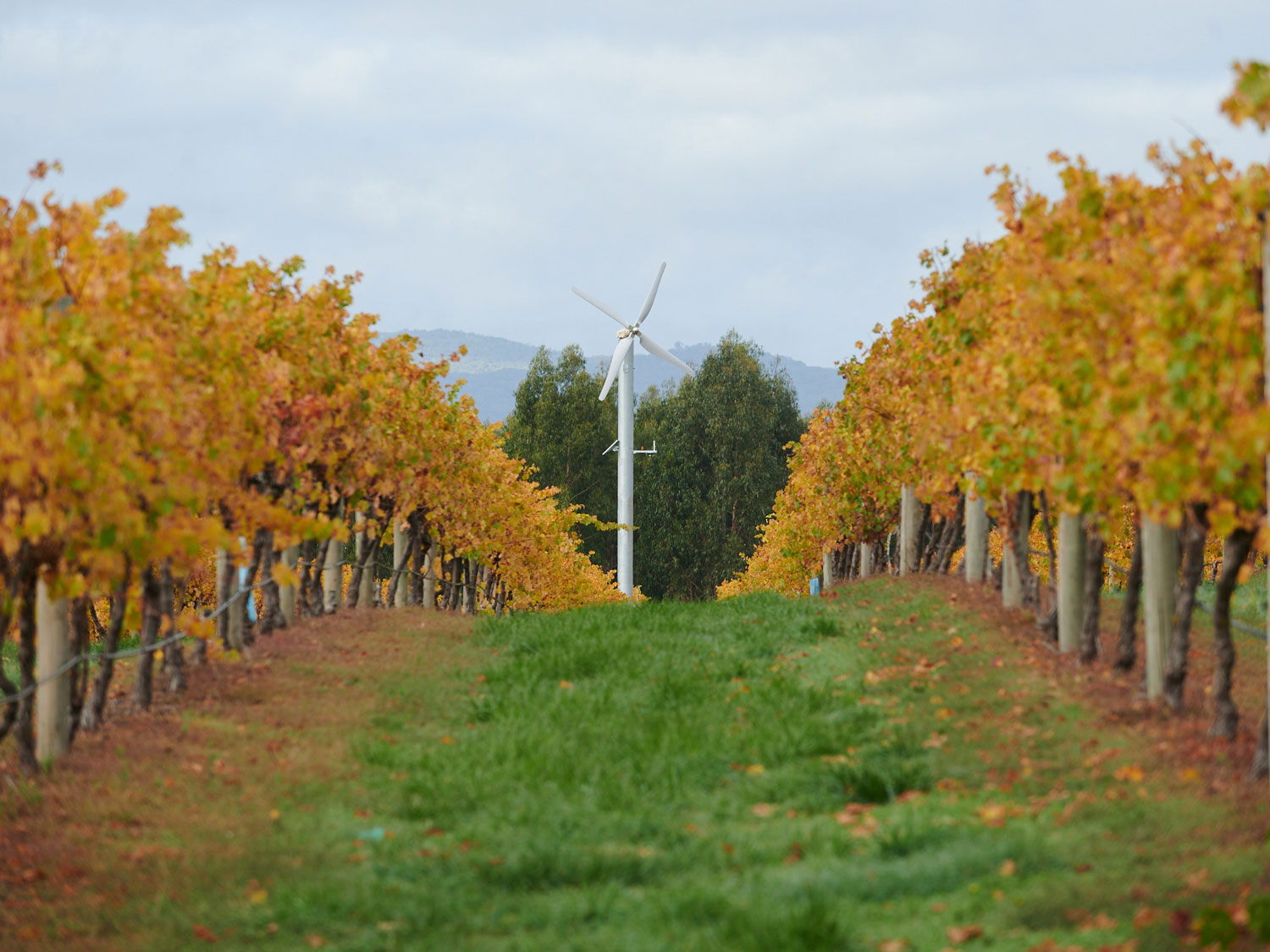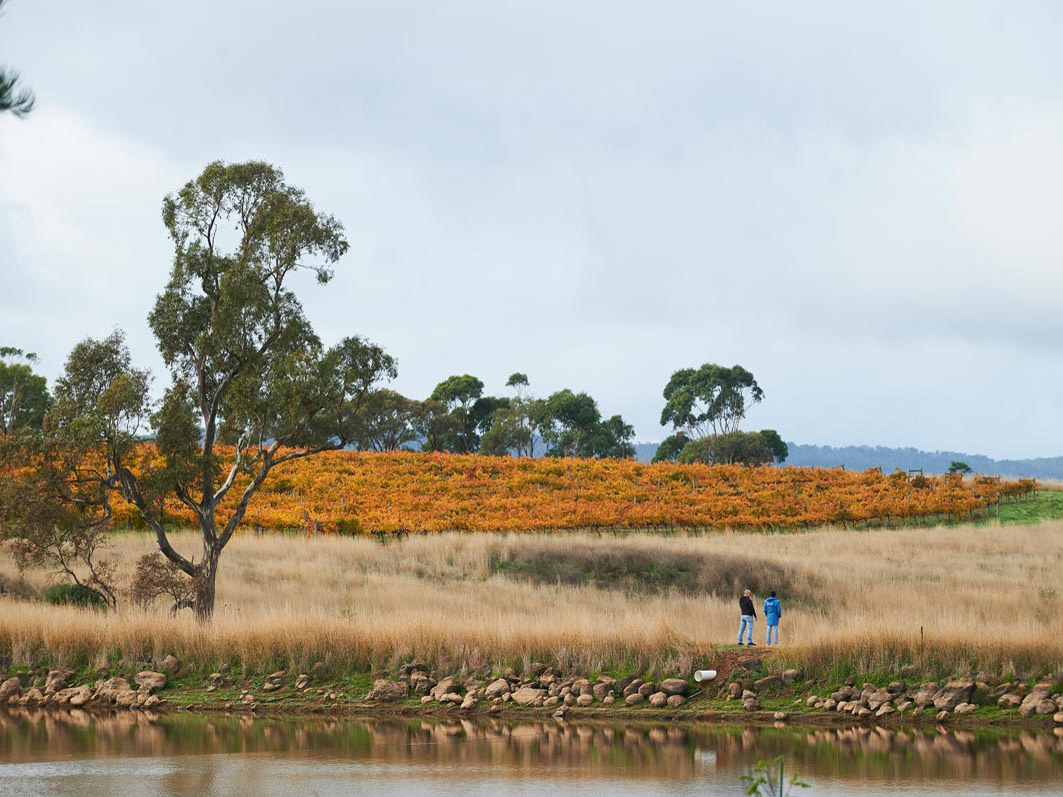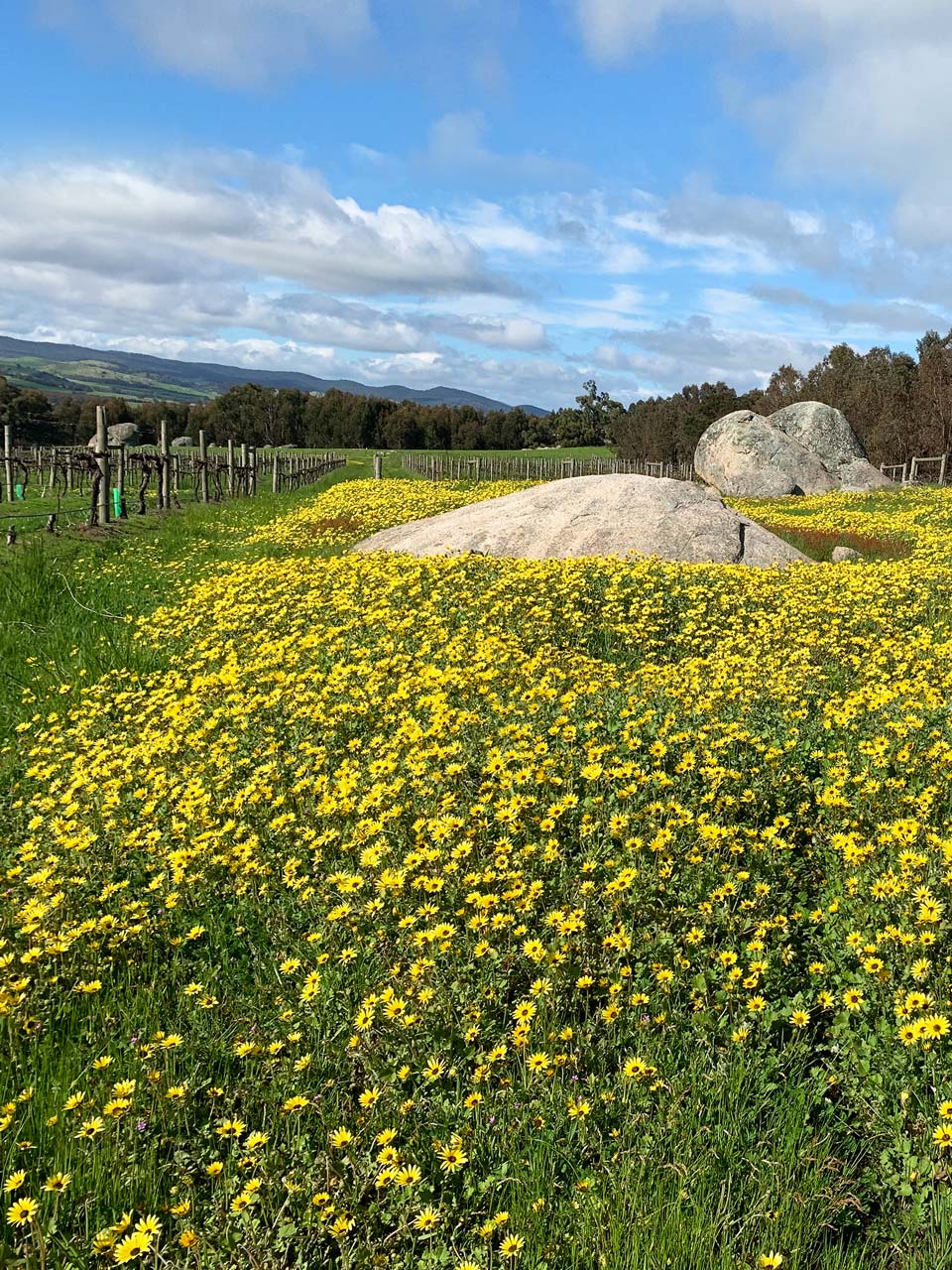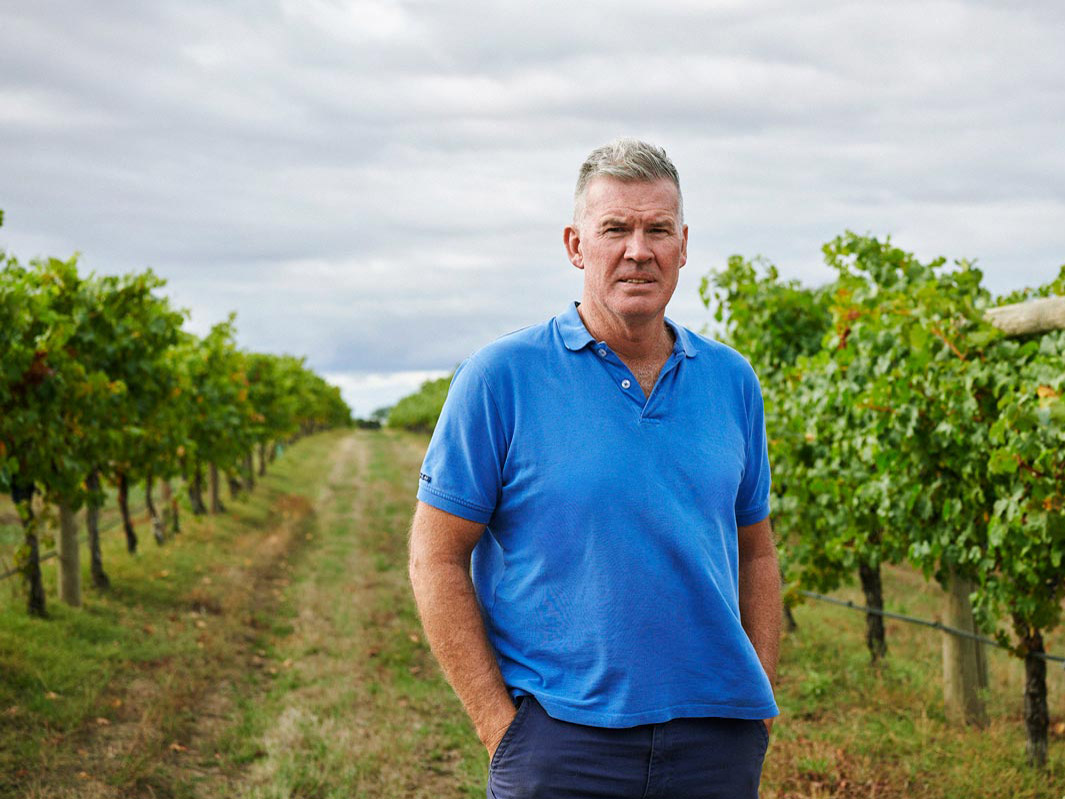At 34-hectares, the Glenhope Vineyard is the largest in the burgeoning Macedon Ranges, a young-ish region with a chillingly cold climate and a small cluster of wine brands developing a cult-like following. Glenhope Vineyard is actually positioned in the most northern area of the region, making it a slightly warmer ‘sub-region’ of the Macedon Ranges comparative to the dress circle of Lancefield, Woodend, Gisborne and Daylesford where most of the chardonnay and pinot noir producers reside. Under the stewardship of Scott Harrington since 2018, and embraced by its new owners James and Marlin Gevergizian in 2021, Glenhope has embarked on a journey to make the vineyard increasingly more sustainable. From its inception in 1995, this vineyard has been dedicated to producing a diverse array of varieties, including chardonnay, riesling, cabernet franc, cabernet sauvignon, malbec, merlot, pinot noir, and shiraz. These go into Glenhope’s own label (launched 2023), as well as a list of the who’s who of producers in the area, including: Bindi Wines (Dhillon range), Silent Way, Latta Vino, ECK Wines, Defialy, Ben Ranken, Josh Cooper and more.
“Established in 1995 as a bulk vineyard to support the Virgin Hills brand, it was evident upon arriving in 2018 that the Glenhope Vineyard was a ‘diamond in the rough’,” says Harrington. “It was an established vineyard with great aspect, topography and soil.”
Harrington points out that despite “a history of underperforming” (in economic terms), there had been some solid planning behind the original architecture design of the vineyard. “The planning prior to planting in 1995 was extensive. Geological mapping was carried out across the site to evaluate soil profiles in search of ‘typicity’, considering grape vine cultivars suitable to the soil classifications identified. There were 140 pits excavated across the site with assessment and evaluation conducted for potential nutrient availability, moisture retention, and soil classification.”
“The planning prior to planting in 1995 was extensive. Geological mapping was carried out across the site to evaluate soil profiles in search of ‘typicity’, considering grape vine cultivars suitable to the soil classifications identified. There were 140 pits excavated across the site with assessment and evaluation conducted for potential nutrient availability, moisture retention, and soil classification.”
That work identified a diversity of soil types across the 450m to 500m elevations of the Glenhope site, ranging from decomposed granite, sandy loams, black heavy loams, and black and red basalt volcanic loams.
Macedon Ranges is the coldest of the regions encircling Melbourne. In fact, Wine Australia calls it Australia’s coldest mainland region. However, just how cold depends on altitude (vineyards at 300 metres are naturally milder than those at 800 metres) as well as longitude (with Glenhope being the northernmost vineyard making it slightly warmer). Harrington identifies the winegrowing benefits of this cool area. “Macedon Ranges climate is the region’s greatest asset largely due to the considerable diurnal temperature range across the region that is perfect for the fruit and wines that we seek to present. This allows for optimal fruit ripeness with acid retention, flavonoid and phenolic development and maturity through the considerable ‘hang time’ the fruit is gifted in the stable climate.”
Chardonnay and pinot noir are the regional stars of Macedon. However, Harrington is not getting fixated on these shining lights. “Macedon Ranges chardonnay and pinot noir is sexy in everyone’s opinion at present; but if you take an interest in the history and origins of Macedon Ranges viticulture and wine, the region cut its teeth on the Bordeaux cultivars,” he says. “The intensive soil classification conducted prior to the establishment of the Glenhope Vineyard has, with hindsight, been validated. It’s testament to those responsible for making the decisions they did to match soil and cultivar given the resultant wines currently being produced, evaluated and enjoyed thus offering an expression of ‘typicity’.”
The vineyard’s environmental ambitions are clear, with a five-year plan aimed at achieving organic certification. “We unashamedly have adopted a put up or shut up mantra regarding our environmental philosophy whereby we will accept nothing less than certification,” states Harrington. This commitment to sustainability is not just about soil health but encompasses a broader ecological perspective, including companion planting and cover cropping to enhance biodiversity and soil structure.
“The sustainable focus at the Glenhope Vineyard is a medium-term plan based on the introduction and application of biological and environmental practices with the focus being on soil remediation to improve soil biodiversity and soil structure, accompanied by enhancing functional biodiversity using organic farming practices and companion planting.”
When the leading regional makers are seeking your fruit, you’re at the very least producing quality grapes. “James and Marlin Gevergizian have recognised the importance of the Glenhope Vineyard to the Macedon Ranges wine region as a ‘grower vineyard’ and have committed to enhance the sustainability of the Glenhope Vineyard and building the reputation of fruit quality amongst the region’s producers and the greater wine community.”






